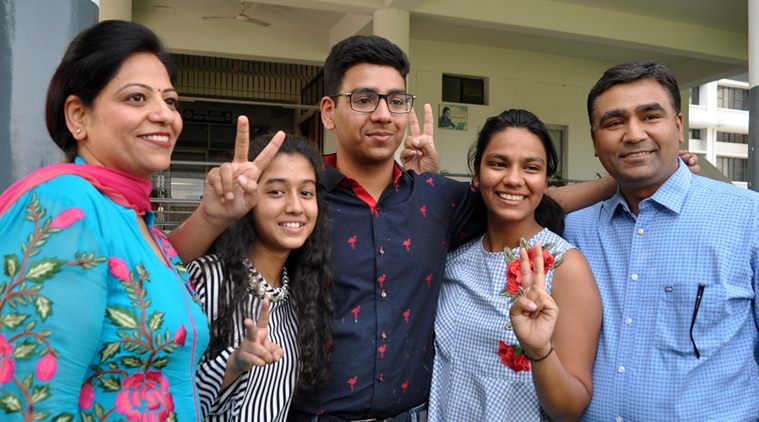Divya Goyal is a Principal Correspondent with The Indian Express, based in Punjab. Her interest lies in exploring both news and feature stories, with an effort to reflect human interest at the heart of each piece. She writes on gender issues, education, politics, Sikh diaspora, heritage, the Partition among other subjects. She has also extensively covered issues of minority communities in Pakistan and Afghanistan. She also explores the legacy of India's partition and distinct stories from both West and East Punjab. She is a gold medalist from the Indian Institute of Mass Communication (IIMC), Delhi, the most revered government institute for media studies in India, from where she pursued English Journalism (Print). Her research work on “Role of micro-blogging platform Twitter in content generation in newspapers” had won accolades at IIMC. She had started her career in print journalism with Hindustan Times before switching to The Indian Express in 2012. Her investigative report in 2019 on gender disparity while treating women drug addicts in Punjab won her the Laadli Media Award for Gender Sensitivity in 2020. She won another Laadli for her ground report on the struggle of two girls who ride a boat to reach their school in the border village of Punjab. ... Read More
CBSE Class 10th results 2018: Amid paper leak and annual exam system comeback, steep fall by 10.45% in Panchkula region pass percentage
CBSE Class 10th results 2018: A total of 2,40,177 regular students from region appeared of which 2,10,520 have passed. The overall pass percentage in region stood at 87.65 per cent, the lowest since 2014.
 CBSE 10th results 2018: Gautam Jain of Bhartiya Vidya Mandir with family in Ludhiana. (Express photo by Gurmeet Singh)
CBSE 10th results 2018: Gautam Jain of Bhartiya Vidya Mandir with family in Ludhiana. (Express photo by Gurmeet Singh)
CBSE 10th results 2018: The overall pass percentage in CBSE’s Panchkula region, which includes Punjab, Haryana, Himachal, J&K and Chandigarh, witnessed a steep fall of 10.45 per cent as the Board declared its results for the Class X exams Tuesday. With the annual board exam system making a comeback this year, the overall pass percentage in region stood at 87.65, the lowest since 2014.
Last year, 98.1 per cent in the region had cleared the exams which were held under the Comprehensive and Continuous Evaluation (CCE) system.
A total of 2,40,177 regular students from region appeared for the exam this year, of which 2,10,520 passed. In 2014, the overall pass percentage of Panchkula region was 99.49, followed by 97.9 in 2015 and 98.1 in 2016 and 2017. However, the overall pass percentage of Panchkula region at 87.65 is slightly better than national average of 86.70 per cent.
Girls have again performed better than boys in region. While the pass percentage for boys stood at 84.64, for girls it was 92.08.
Last year, 97.68 per cent of boys and 98.77 per cent of girls cleared exams in Panchkula region. Boys’ pass percentage has fallen by 13.04 and of girls by 6.69.
 Students of a public school celebrate in Patiala. (Photo: Harmeet Sodhi)
Students of a public school celebrate in Patiala. (Photo: Harmeet Sodhi)
This year, the annual exams and marking system for Class X made a comeback after eight years. In 2010, the board had started with Comprehensive and Continuous Evaluation (CCE) system under which students were given subject wise grades (A1 to E2) and an overall Cumulative Grade Point Assessment (CGPA) (4 to 10). No percentage was calculated. The step, as per the board, was to ‘reduce burden’ on students.
However, the annual exams were restored this year and this time students have been given individual marks in each subject. They attempted a theory paper for 80 marks and 20 marks for internal assessment were given by schools.
Also, CBSE exams were mired in controversy this year after the board admitted that mathematics paper was leaked. A re-exam was also announced but cancelled later. Some students have alleged that due to paper leak, board has apparently followed an extremely strict and tight marking approach.
R J Khanderao, Panchkula Region Director, CBSE, said that independent private schools in region have performed better than government schools. He, however, refused to comment on 10 per cent fall in region’s result.
As per state-wise pass percentage in Panchkula region, Jammu & Kashmir has topped the region with the highest 96.28 overall pass percentage followed by Himachal Pradesh (94.45), Punjab (88.95), Haryana (88.54) and UT Chandigarh (66.21).
Photos


- 01
- 02
- 03
- 04
- 05






























